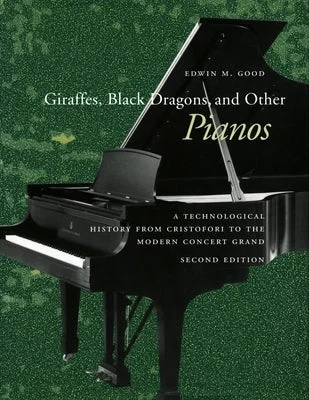This lavishly illustrated book treats the history of the piano from its invention in 1700 to the present in terms of its technology. Looking at the technologies of design, materials, and manufacture, and focusing its description on specific existing pianos, it describes the changes in pianos from the earliest days to contemporary instruments.
This revised edition incorporates the results of recent research that increases knowledge of the work of Bartolomeo Cristofori, the inventor of the piano; changes perceptions of how eighteenth-century pianos were made and used; adds to the available information about the important contributions of the Steinway Company; and describes the most recent changes to the piano.
The first edition of this book received the Otto Kinkeldey Award of the American Musicological Society as the best musicological book in English published in 1982-83.
Reviews of the First Edition
If you have ever looked under the lid of a piano and wondered about the technical how and why of it all, this is the book to sate your curiosity. . . . Good's vigorous prose breathes life into the technology . . . and brings forward the people involved, with humor and sensitivity.
--Los Angeles Times
This is a fine book. Accurate technical description, an abundance of photographs and drawings, and a very readable text complement a provocative thesis.
--Technology and Culture
Intriguing reading. It turns out that the story of the piano and its evolution . . . is rife with human interest, at least when Good relates the details.
--Keyboard
Author:
Publisher: Stanford University Press
Published: 07/16/2002
Pages: 400
Binding Type: Paperback
Weight: 1.64lbs
Size: 8.96h x 7.04w x 0.96d
ISBN13: 9780804745499
ISBN10: 0804745498
BISAC Categories:
- |
- |
About the Author
Edwin M. Good is Professor of Religious Studies and (by courtesy) of Classics, Emeritus, at Stanford Universi

